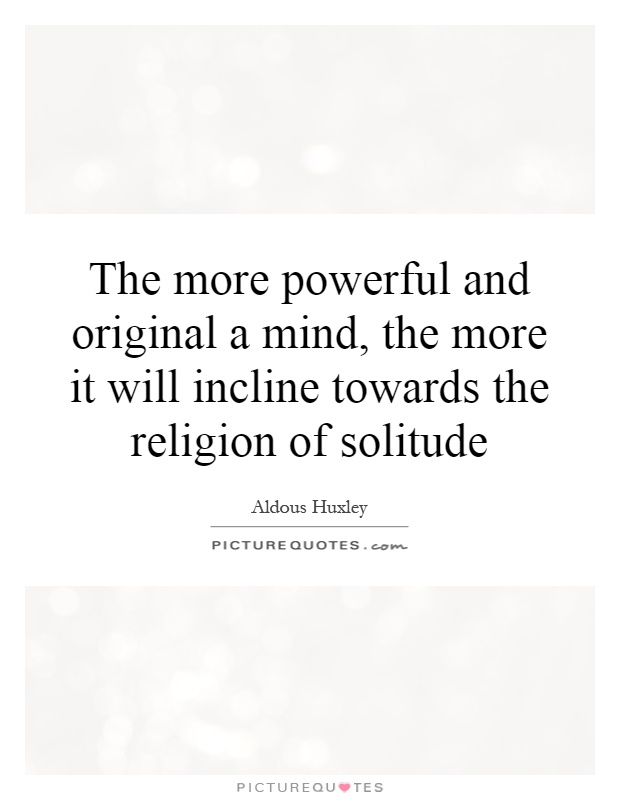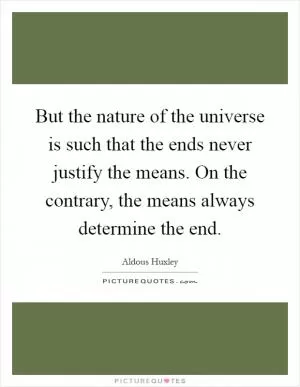The more powerful and original a mind, the more it will incline towards the religion of solitude

The more powerful and original a mind, the more it will incline towards the religion of solitude
Aldous Huxley, the renowned English writer and philosopher, was a man of great intellect and creativity. Throughout his life, he explored various philosophical and spiritual ideas, often delving into the depths of human consciousness and the nature of reality. One of the recurring themes in Huxley's work is the concept of solitude and its relationship to the mind of a powerful and original thinker.Huxley believed that solitude was essential for the development of a truly powerful and original mind. In his essay "The Doors of Perception," he writes about the importance of solitude in allowing the mind to break free from the constraints of society and conventional thinking. He argues that solitude provides the space for deep introspection and contemplation, allowing the individual to tap into their innermost thoughts and ideas.
For Huxley, solitude was not just a physical state of being alone, but a mental and spiritual state of being disconnected from the distractions of the external world. He believed that in solitude, the mind could reach new heights of creativity and insight, unencumbered by the noise and influences of society. In his novel "Brave New World," Huxley explores the dangers of a society that values conformity over individuality, where solitude is seen as a threat to the stability of the social order.
Huxley's own life reflected his belief in the power of solitude. He often retreated to remote locations to work on his writing, seeking out the peace and quiet that allowed his mind to flourish. In his later years, Huxley became interested in Eastern philosophy and meditation, further exploring the connection between solitude and spiritual enlightenment.












 Friendship Quotes
Friendship Quotes Love Quotes
Love Quotes Life Quotes
Life Quotes Funny Quotes
Funny Quotes Motivational Quotes
Motivational Quotes Inspirational Quotes
Inspirational Quotes